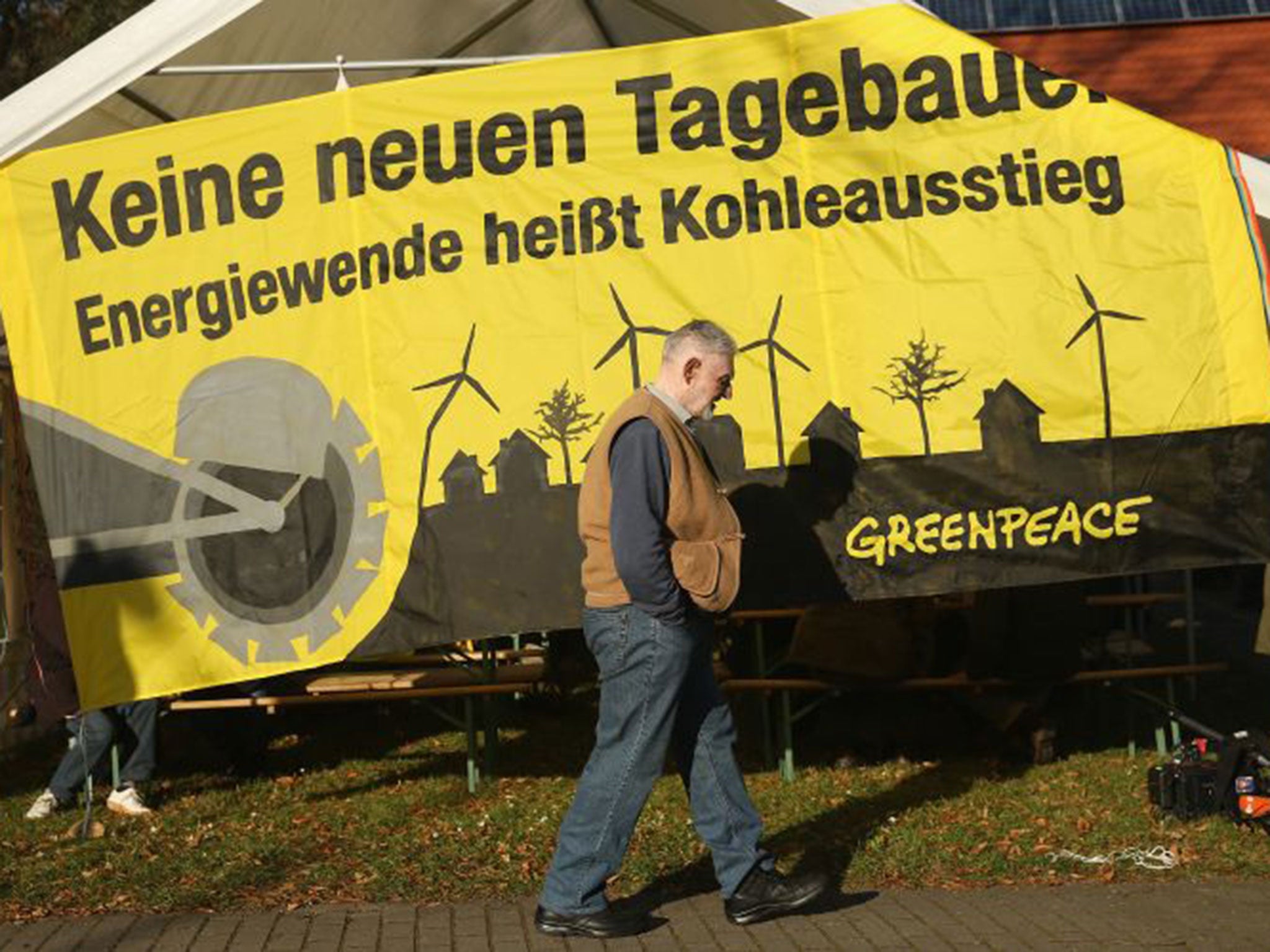Green village to be bulldozed and mined for lignite in Germany's quest for non-nuclear fuel
More than 800 residents including some 400 from a neighbouring village will be resettled

Your support helps us to tell the story
From reproductive rights to climate change to Big Tech, The Independent is on the ground when the story is developing. Whether it's investigating the financials of Elon Musk's pro-Trump PAC or producing our latest documentary, 'The A Word', which shines a light on the American women fighting for reproductive rights, we know how important it is to parse out the facts from the messaging.
At such a critical moment in US history, we need reporters on the ground. Your donation allows us to keep sending journalists to speak to both sides of the story.
The Independent is trusted by Americans across the entire political spectrum. And unlike many other quality news outlets, we choose not to lock Americans out of our reporting and analysis with paywalls. We believe quality journalism should be available to everyone, paid for by those who can afford it.
Your support makes all the difference.Even by German standards, Johannes Kapelle rates as a model green citizen. The roof of his meticulously restored 19th-century farm house is covered in solar panels. And when he walks into his large vegetable garden he points to a wind farm which helps provide not only his village but several others with all their energy needs.
Mr Kapelle has lived in the 500-year-old village of Proschim in east Germany's Lausitz region for most of his life. He, his 350 neighbours and the local farming community have devoted themselves to the green cause. The village is surrounded by wind turbines and solar and biogas plants which provide 15,000 homes with electricity.
The retired maths teacher, 78, remembers how under East German rule, Proschim used to reek of sulphur. The former communist state depended on so-called braunkohle the lignite coal fuel that is still being dug out of the ground in vast open-cast mines just a few kilometres away.
"We don't want to go back to those days. That is why we are doing everything we can to save Proschim," Mr Kapelle says.
Chancellor Angela Merkel's plan to end Germany's dependence on nuclear power by 2022 is set to bring about the destruction of Mr Kapelle's farm house and the rest of Proschim's buildings. More than 800 residents including some 400 from a neighbouring village will be resettled.
Proschim is just one of a cluster of east German villages and farms set to make way for new lignite mines. The fossil fuel is intended to "bridge" a widening energy gap resulting from the closure of Germany's nuclear power plants.
"There are not yet enough renewable energy sources to compensate for the loss of nuclear power," said Matti Nedoma, a spokesman for Proschim's Prenac farm complex. "So to meet the shortfall we are being told we must burn more coal and destroy farms and villages in the process," he said.
Mrs Merkel unveiled Germany's plan to axe nuclear power in 2011 in response to public concern over the Fukushima disaster. Eight of the country's 17 atomic power plants have since been shut down. Now, although modern filters have reduced pollution, figures for 2013 show that Germany burned more lignite than at any time since 1990.
In June the east German state of Brandenburg approved the state-owned Swedish energy giant Vattenfall's plans to extend its five lignite mines. The company plans to mine 200 million tons of coal from the extended open-cast pits from 2027.
The residents of Proschim are up in arms. A large billboard with a map of the area stands on a T-junction in the middle of the village. It displays 16 black crosses denoting the villages that have disappeared over the past decades to make way for new mines. Proschim is one of the red crosses denoting the villages now threatened with demolition.
Mr Kapelle's neighbour, Martin Boslau, 65, says Germany's politicians promised after reunification in 1990 that no further villages would be demolished to make way for coal. "That's why we did up our house and helped turn Proschim into a jewel. We are not going anywhere," he said.
Mr Boslau is one of more than 121,000 people who signed a petition opposing Vattenfall's plans. The village is planning to fight the Swedish energy giant with court injunctions at every step.
But the pro-coal lobby has 68,000 adherents. Local politicians and Vattenfall argue the region has depended on lignite mining for more than a century. The company says it provides 8,200 jobs in the region and that 25,000 others are linked to coal. Opponents say the new mines will create only 700 jobs.
Sigmar Gabriel, Chancellor Merkel's Energy minister, claims that more lignite mines are vital: "We need strategic reserves of gas and coal power for the times when the wind doesn't blow and the sun doesn't shine," he said.
Opponents argue that the region already has almost 40 billion tons of lignite reserves. They also point out that Vattenfall exports much of the energy from its German operation.
They hope that the outcome of Sweden's recent election may yet rescue Proschim. The new Swedish government comprised of Social Democrats and Greens could insist Vattenfall halt its expansion. Lise Nordin, the Swedish Green party's energy spokeswoman, said last week that stopping Vattenfall's east German project was her party's "most pressing" decision.
Join our commenting forum
Join thought-provoking conversations, follow other Independent readers and see their replies
Comments